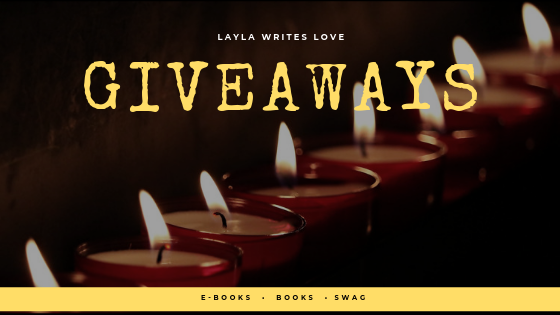 #openbook
#openbook
How do you move past writer's block?
I never get writer’s block. I may say I do but not really. What I usually experience is more like a hurdle to clear and keep things moving. A basic definition of writer’s block is, “the condition of being unable to create a piece of written work because something in your mind prevents you from doing it.” Other definitions describe it as an inability to write—as if there a mystical wall keeping words stuck in the mind or a force imprisoning creativity. There are reasons why a writer can’t write, and it is not always psychological or due to “having something on your mind.”
Through years of academic, professional, teaching and coaching writing, I learned a few things about the ominous “writer’s block” and the external and internal factors that drive writers to fall back on what is ultimately an excuse, a justification, for a blank screen. Covering everything in one post is not possible. So, I will highlight some prevalent ones.
Internal Factors
Can writer’s block be in one’s head? No, because the writer’s fragile ego is taking up too much room. I wrote in a previous post, “Authors take big risks by releasing their work into a world that may be unkind … Every time an author puts pages between the covers of a book, they are telling their readership, ‘I have a story for you, and you are going to love it.’ They must have an ego to strut their literary stuff.”
A writer’s ego is simultaneously a blessing and a curse. Every ego contains some level of fragility, anxiety—fear. Feeling like an imposter and the potential for negative criticism will beat any writing bravado into a corner. The same apprehensions about feedback that keeps a student from finishing a paper may cause writers to hesitate in front of the keyboard. Whether instructors, editors or readers, we’re just plain scurred of what someone will say, leaving us staring and searching for the perfect words, which rarely even exist during the drafting stage.
Need an example? I’m publishing this post without editing content, so all the usual crutches and pitfalls I fall into as a writer remain, but I’m getting the damn thing done. When writers don’t anticipate the worst and realize literary perfection is an unattainable fantasy, words tend to flow, unless they are just too tired to apply their craft.
Emotional exhaustion is a thing. Stress and feelings of helplessness can drain a person, leaving no energy to write. Fatigue catalysts can be sneaky and accumulate—a disagreement with one’s partner, work stress, a friend calling with their woes—dampening any inclination to create. Jettisoning as much emotional baggage everyone tries to pile onto you and some self-care may help get those juices flowing again.
Not writing anything for a while may be necessary. Writing exhausts writers, so a little time away from it allows one to re-energize.
External Factors
A reader asked me about some of the biggest challenges I face as an author.
Authors get asked that a lot. My answer rarely varies—time and interruptions. Damn those twenty-four hours in a day. They just won’t listen and become more. Authors have professional (novel writing is not the main source of income for most) and personal lives, each demanding energy and time. Finding sufficient time to develop a plot, construct character arcs and write content can be difficult. One cruel irony is that creative often burgeons when there is no time. Authors scramble to find a moment to weave a story, but frustration usually sets in when the brilliance blazing in their minds flickers into embers because that’s how it often works. Write right now or risk losing everything.
There are plenty of articles offering time management advice, but what good is that if the people around them don’t respect a writer’s schedule, especially those who see it as a hobby? Kids are going to need things (mine have interrupted me 10 times while I was writing the last two paragraphs). Husbands, bosses, friends and even fellow authors (someone just hit me up on Facebook asking about publishing services) are going to demand time, so it is important to take a stand, make the proper threats, shut some sh stuff down and write.
A regular writing spot can be great but anticipate having to write in some unique situations when the bug bites. I once wrote an entire chapter on my phone while waiting in the ER with Papa Bear. It was quieter than my house most of the time. I knew that if I didn’t get those characters doing what they wanted, I could end up sitting in front of my laptop at home with my head pounding because they got all huffy and went storming into the back of my mind while the doctor was giving us his diagnosis.
When your story calls, pay attention. Write in the body of an email. Download and use word processing apps like Google Docs or Microsoft Word on your devices. Get a Bluetooth keyboard to bring with tablets and phones. The Nulaxy Backlit Bluetooth Keyboard works well for me, but embrace the inner gadget geek and shop around for what will fit. Use a speech to text app or feature to speak what you want to eventually write. I have Speechnotes, but there are others.
Who has time for all of that? A writer.
Anyone committed to writing accepts that quick fixes do not exist. It takes critical assessments about one’s self and environment to understand how they affect writing and ingenuity to find ways to keep keyboards clicking.










Reblogged this on aurorawatcherak.
LikeLike
I thought from the title that you were going to write about denial of writer’s block, but I think you nailed it for a lot of writers – there’s a ton of stuff that demands our attention away from our writing and those are obstacles to overcome, not to be defeated by.
LikeLiked by 1 person
Thanks. The term is so vague, making it seem like something inevitable.
LikeLike
Yeah. I think most people think writer’s block is something inevitable. Okay, just because Hemingway, Fitzgerald and Salinger suffered from it doesn’t mean all writers do. Bradbury said writer’s block is a sign you’re doing something wrong and the treatment for it is to stop doing whatever it is. For me, it’s trying to tell my characters what their story will be, so I don’t do that and, usually, it all works out. My problem is shutting off my writer’s brain so I can enjoy the world around me because I draw a lot of inspiration from ordinary life.
LikeLike
You really have made a lot of sense here. The biggest constraint for modern authors is time so perhaps we don’t have enough of it to indulge in the luxury of writers block. When time does present itself, we hit the ground running.
LikeLiked by 1 person
Thanks!
LikeLiked by 1 person
Great ideas always seem to come at the most inconvenient time. I carry a notebook but I have to be quick to type my notes up as my writing is pretty bad
LikeLiked by 1 person
Try a speech to text app to take notes. I started using it because I have bad handwriting too.
LikeLike
I still carry around notepads for those moments when I don’t have access to a computer and I think I’ll have a chance to write. I don’t know if the words would come out the same as I think of them (You know, you have the perfect sentence in your head but when you put it on the screen and look at it, it doesn’t work?)
LikeLike